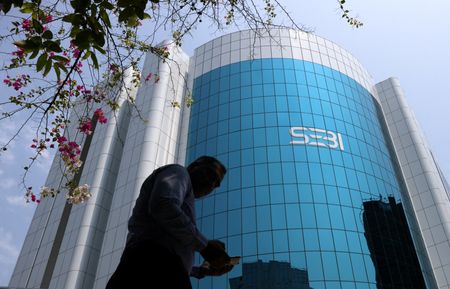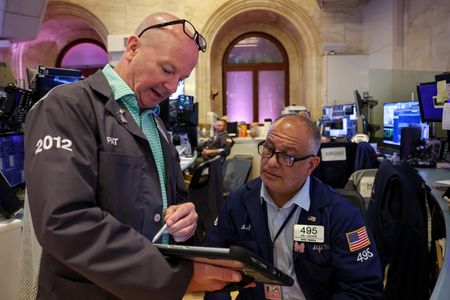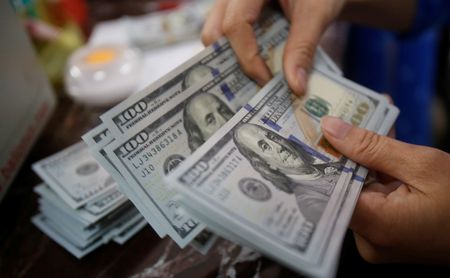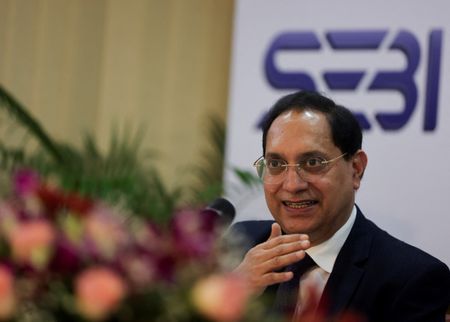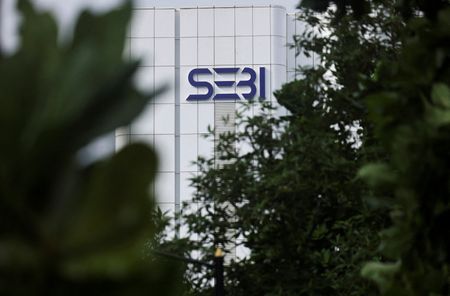By Nimesh Vora and Bharath Rajeswaran
MUMBAI (Reuters) – India’s markets regulator has proposed rules to curb possible manipulation and limit the spill-over of volatility from equity derivatives into the broader cash market, which has slipped sharply after hitting record highs in September 2024.
The Securities and Exchange Board of India’s (SEBI) last set of changes, in October, had raised the entry barrier and made it more costly to trade in derivatives.
Its latest proposals, announced late Monday, include changing how open interest on a single-stock derivative is calculated for a more accurate picture of exposure.
It also proposed changing the position limit to 15% of the free-float market capitalisation of a stock or 60 times the average daily delivery value, whichever is lower.
Currently, the limit is the lower of 20% of free-float market cap or 30 times the daily average.
The change would reduce “artificial pushes” of stocks into the ban period and make manipulation more difficult, SEBI said. Trading in stock derivatives in the so-called ban period is allowed only to square off existing positions.
The regulator also proposed index derivatives — other than for the BSE Sensex and NSE Nifty 50 benchmarks — only be offered if the index meets certain criteria, to stymie what it called a “nexus” between the cash and derivatives markets.
“If a high proportion of index weightage is attributable to a small number of stocks, participants could effectively replicate a large (and unmonitored) position in those constituents, giving rise to fears or risks of market manipulation and/ or excessive market volatility.”
To stop this, it proposed derivative contracts only for indexes with at least 14 constituents, with the weight of the top three less than 45% and that of the top member capped at 20%.
In comparison, the Nifty Bank Index, which is popular among investors, has 12 constituents, with the top three members’ total weight over 60% as of January 31.
“A reduction in the weight of the top three stocks and addition of more constituents will reduce the risk of potential manipulation of the index on the basis of few stocks,” said Abhilash Pagaria, head of Nuvama Alternative and Quantitative Research.
The SEBI has also proposed a pre-open session for the futures market, similar to the cash market, for both single stocks and indexes.
It has sought feedback on all proposals until March 17.
(Reporting by Nimesh Vora and Bharat Rajeswaran; additional reporting by Ira Dugal; Editing by Varun H K, Mrigank Dhaniwala and Savio D’souza)

